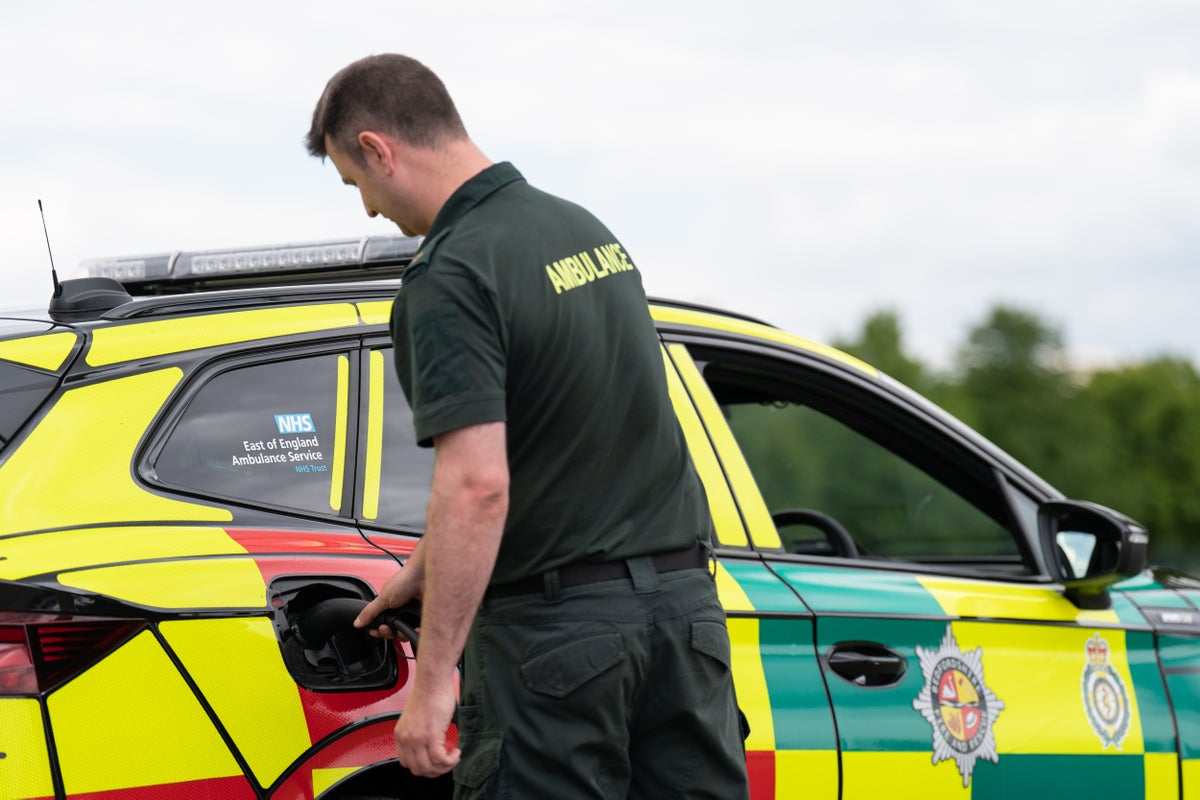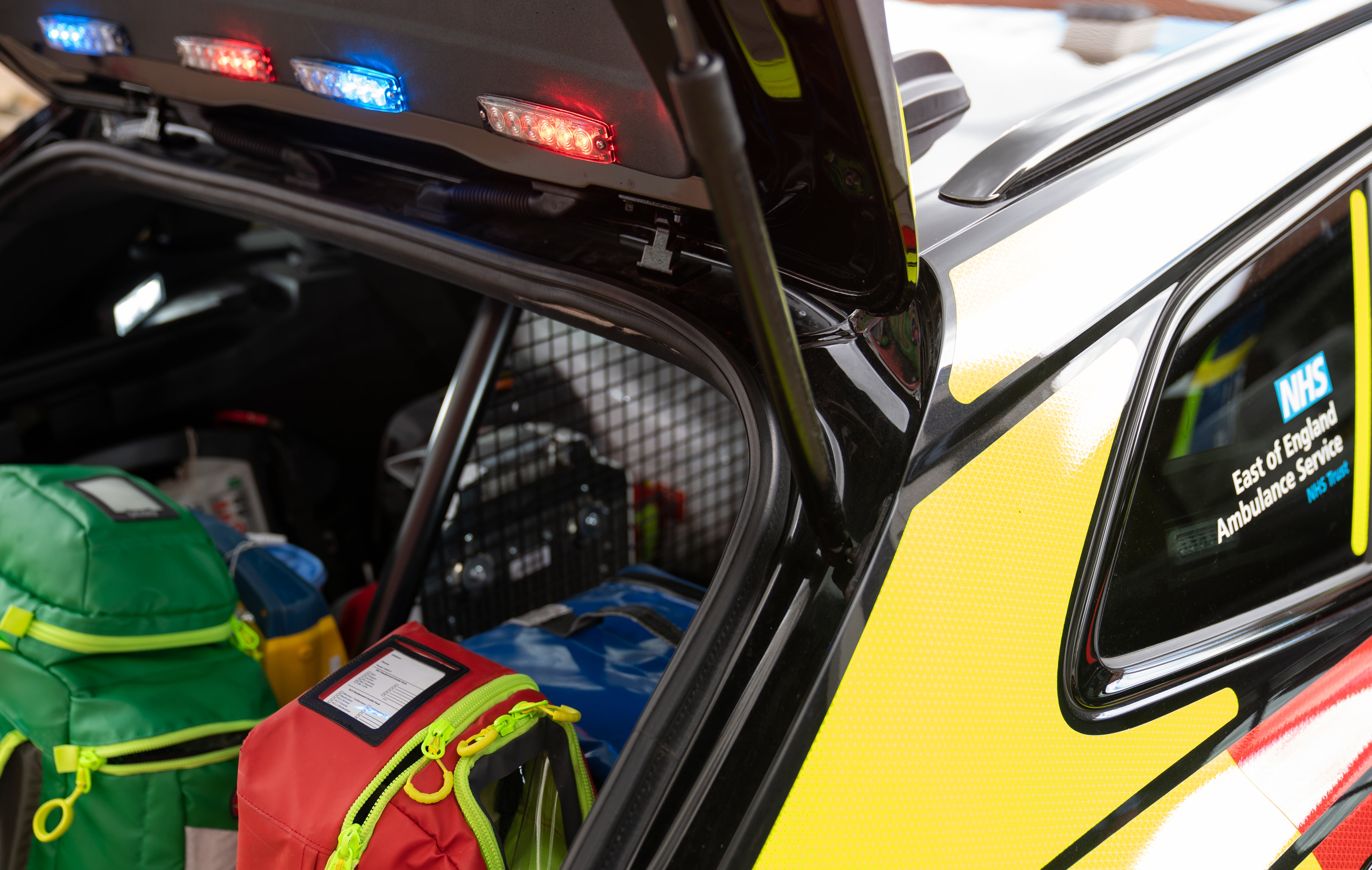
A nurse has described being unable to save her neighbour’s life as he waited two hours for an ambulance.
Ambulance services in England have been put on the highest level of alert due to “extreme pressures” as the NHS prepares to release new figures on waiting times.
Community nurse Claire, 49, from Stoke-on-Trent, who did not want to share her surname, witnessed the impact of long ambulance waiting times on June 8 when her 59-year-old neighbour collapsed.
After more than two hours of waiting for paramedics to arrive, the man went into cardiac arrest and, despite performing CPR, Claire was unable to save him.

“It was a category two call; they should’ve been there in 18 minutes,” Claire told the PA news agency.
“I did everything I could, but obviously you think about things after and whether anything could’ve been done to create a different outcome. It’s extremely sad.”
Ambulance waiting time targets in England use four categories of calls, which have different response times.
Category one calls, for life-threatening injuries and illnesses, should be responded to in less than seven minutes on average.
Category two calls, for emergencies such as strokes, should have an average response time of less than 18 minutes.
Category three calls, for urgent issues such as abdominal pain, should most often be responded to in under two hours.
And category four calls, for non-urgent problems, should see an ambulance at the scene in less than three hours.
After 90 minutes, two crews from the West Midlands Ambulance Service arrived and attempted to resuscitate the man but, 50 minutes later, he was pronounced dead.
Claire, who has worked as a community nurse for almost 30 years, said: “I have no blame at all for the ambulance service.
They're working under incredibly difficult circumstances and I can't imagine what it must be like for them to do their job at the moment with these situations that they're facing. But patients are potentially dying that might not have died if the ambulance had been able to get to them in time— Claire
“They’re working under incredibly difficult circumstances and I can’t imagine what it must be like for them to do their job at the moment with these situations that they’re facing.
“But patients are potentially dying that might not have died if the ambulance had been able to get to them in time.”
Gareth, 27, a support worker from Solihull, Birmingham, who also did not wish to share his second name, told the PA news agency his father was made to wait 18 hours for an ambulance after falling off his mobility scooter into the street.
Barry, 83, fell outside a McDonald’s 10 minutes from home on July 9 while out with his son.
Gareth said when he called an operator and told them his father may have a broken hip and was “extremely exhausted”, he was advised not to move him and told it could take up to five hours for paramedics to arrive.
His father was in the street for an hour and after being told the length of the wait Gareth took him home.
“My dad was in excruciating pain and the phone call wasn’t that helpful as they told me it could take up to five hours,” Gareth told PA.
Gareth said he called 999 seven times and was told more than 28 people in Birmingham were waiting for ambulances – with paramedics eventually arriving for his father at 11am the next day.
“They told me not to move him from the position he was in (which was sitting up). They expected him to just sit up and be in pain for 18 hours. It’s just wrong,” Gareth added.
“It seemed like they (were) just never going to come… 3pm to 11am is ridiculous.”
West Midlands Ambulance Service offered its condolences to the family of the patient who died in Stoke and the length of time it took crews to arrive.
It also apologised for the time it took for an ambulance to reach the patient in Solihill.
A spokesman added: “The ambulance service relies on each part of the health and social care system working together so that our ambulances can get to patients in the community quickly. Sadly, the pressures we are seeing in health and social care lead to long hospital handover delays with our crews left caring for patients that need admitting to hospital rather than responding to the next call. The result is that our crews are delayed reaching patients.
“We are working incredibly hard with all of our NHS and social care partners to prevent these delays, looking at new ways to safely hand over patients quickly so that our crews can respond more rapidly and save more lives.”







